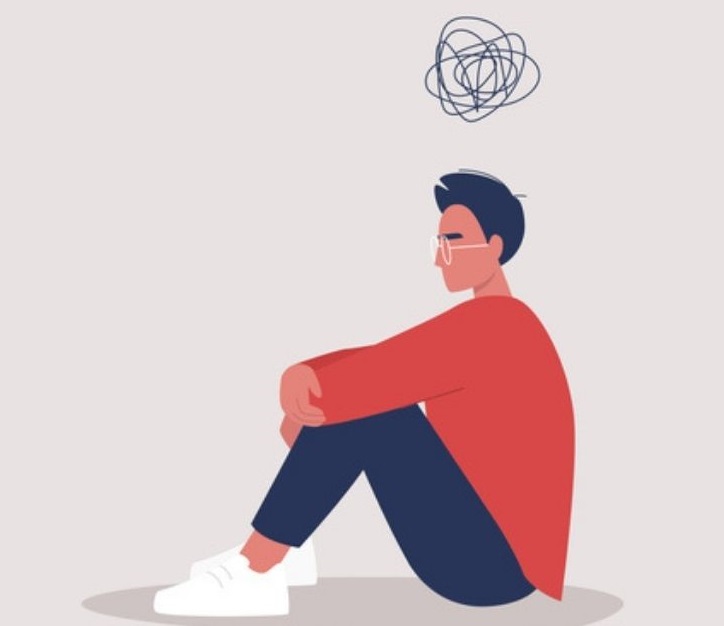
Authored by Courtney Hirsch, MSW, LSW.
Our thoughts yield incredible power. Our thinking influences our moods, behaviors, and relationships. Thoughts can cause us to act out of anger, seek revenge, or pursue exciting opportunities. In Cognitive Behavioral Therapy, we call distressing thoughts “negative automatic thoughts” because they appear on their own with no effort on our part. CBT-based techniques are valuable in reframing negative thinking patterns in order to live a happier, more hopeful life.
Identifying Problematic Thoughts
The first step to reframing is to know what our negative thoughts are in the first place. Here are some signs of negative thinking to increase your emotional awareness:
- You feel a sudden shift toward negative emotion
- You can’t seem to ignore a negative feeling
- You are struggling to follow your goals
Common Thinking Errors
- Black and White Thinking
- Seeing things in extreme terms
- “If I fail this test, I’m stupid.”
- “Shoulding”
- Thinking the way we want things to be is the way they ought to be
- “She should’ve cared more.”
- Overgeneralizing
- Believing that one instance applies to every situation
- “He didn’t want to go on a date with me, so nobody does.”
- Catastrophizing
- Thinking a situation is much worse than it is
- “I made a mistake at work, so I’m probably getting fired.”
- Discounting the Positive
- Minimizing evidence that contradicts negative automatic thoughts
- “She only said yes to a date because she felt sorry for me.”
- Emotional Reasoning
- Assuming our feelings are providing accurate and useful information
- “I’m nervous about this presentation; I think it’s a bad sign.”
- Fortune Telling
- Making predictions based on very little information
- “They probably won’t have enough time to talk to me at the party.”
- Mind Reading
- Assuming we know what someone else is thinking
- “They probably thought I was an idiot when I was presenting.”
- Personalization
- Thinking that events that have nothing to do with us are actually about us
- “He seems upset; it’s probably something I said.”
- Entitlement
- Expecting to get a specific outcome based on our actions
- “I deserve a promotion after working so hard.”
Thought Ladder
 The Thought Ladder is a great way to dip your toe into reframing. Positive affirmations often get a lot of criticism. One reason for this is some go too far, too fast with their reframing. Let’s be realistic! Here’s an image illustrating how to utilize the thought ladder approach to adjust negative thinking.
The Thought Ladder is a great way to dip your toe into reframing. Positive affirmations often get a lot of criticism. One reason for this is some go too far, too fast with their reframing. Let’s be realistic! Here’s an image illustrating how to utilize the thought ladder approach to adjust negative thinking.
Cognitive Behavioral Therapy provides us with more ways to challenge our negative automatic thoughts, and increase our emotional awareness and regulation skills. Individual therapy is a great way to learn and practice these techniques. Group therapy is another great option to explore. In a CBT therapy group, participants create meaningful and shared connections with others through mutual empathy and empowerment, which contributes to the development of a healthier “sense of self”.
If you are a member of the LGBTQ+ community who is struggling with negative thought patterns or other issues related to your mental health, consider therapy. Group therapy can provide a safe, affirming and structured space for participants to explore the patterns in their own relationships, work towards increasing healthy connections that can foster growth and mutually-beneficial relationships and developing queer community support. Other folks find individual therapy to be an effective method of exploring and addressing these issues.
____________________________________________________
This post is authored by Courtney Hirsch, MSW, LSW. IntraSpectrum Counseling is Chicago’s leading psychotherapy practice dedicated to the LGBTQ+ community, and we strive to provide the highest quality mental health care for multicultural, kink, polyamorous, and intersectional issues. For anyone needing affirming and validating support, please click here or contact us at help@intraspectrum-chicago.com.





 IntraSpectrum Counseling unequivocally denounces the recent surge in anti-transgender rhetoric and the scapegoating of transgender people in the aftermath of recent shootings. Such rhetoric is baseless and deeply harmful, fostering stigma, discrimination, and potential violence against an already marginalized community. We stand firmly with transgender and nonbinary individuals, and reaffirm our commitment to providing affirming, compassionate, and inclusive care. We urge community leaders, media outlets, and the public to reject misinformation and prejudice, and to work collectively toward equity, dignity, and justice for all people.
IntraSpectrum Counseling unequivocally denounces the recent surge in anti-transgender rhetoric and the scapegoating of transgender people in the aftermath of recent shootings. Such rhetoric is baseless and deeply harmful, fostering stigma, discrimination, and potential violence against an already marginalized community. We stand firmly with transgender and nonbinary individuals, and reaffirm our commitment to providing affirming, compassionate, and inclusive care. We urge community leaders, media outlets, and the public to reject misinformation and prejudice, and to work collectively toward equity, dignity, and justice for all people.